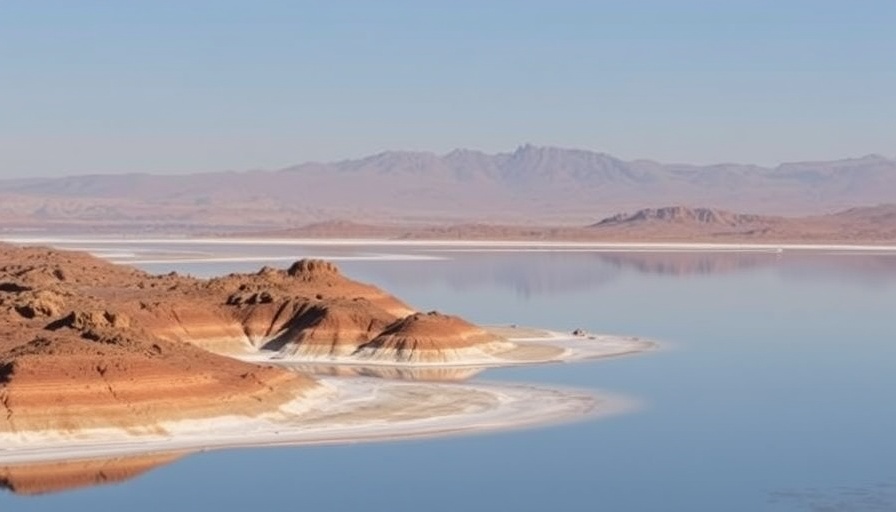
A Deep Dive into Emergency Preparedness: More Than Just a Tradition
In many houses across Utah, prepping for emergencies is not just a passing trend, but a family tradition steeped in history and community values. For many members of The Church of Jesus Christ of Latter-day Saints (LDS), the intricacies of emergency preparedness begin at home, often rooted in the teachings that emphasize both physical and spiritual preparedness. As author Eli McCann recounts in his reflections, a simple exercise of checking 72-hour kits transforms into a rite that intertwines community, family, and even a touch of humor.
Every six months, the McCann family gathered to inspect their emergency backpacks—a semiannual ritual filled with nostalgia and laughter. The bags filled with outdated supplies and forgotten items reflect not just a lack of preparedness but also the disconnect between the urgency of doomsday alerts and everyday life. This humorous yet poignant observation resonates with many families who find themselves caught in a similar cycle of reassessment and procrastination. Over time, those 72-hour kits may gather dust, but the ethos of readiness remains part of familial conversations.
The Prepper Lifestyle: A Cultural Perspective
While the notion of prepping might seem eccentric to some, its roots lie deep within communities shaped by experiences of scarcity and resilience. McCann describes how, in the 1980s and '90s, the Utah community was infused with a sense of cautious preparedness. This phenomenon reflected a broader cultural response to uncertainties—both anticipated and realized—leading many neighbors to adopt varying degrees of this practical lifestyle. Some homes indeed became veritable bunkers with supplies that not only included food but weapons and faith-based items, illustrating the significant intersection of survivalism and cultural identity.
This cultural legacy can be traced back to a combination of church directives and general societal norms encouraging families to maintain home supplies, which has persisted into contemporary times. The emphasis on a two-year food supply can leave families in a constant state of readiness, while also generating discussions about food waste, sustainability, and the balance between preparedness and paranoia.
Understanding Community Insights
The reflections on personal and community experiences of hoarding candy of friends, similar to a rite of passage, reveal a deeper societal commentary—the innocence of childhood mixed with the adult anxieties of preparedness in a landscape often dominated by threats. Schools practiced fire drills, and families were enmeshed in the community-wide plans for emergencies, illustrating the cultural assimilation of these values into children's lives. Such activities foster a community bond, even if the fears they represent can feel exaggerated at times.
The Role of Humor and Seriousness in Preparedness
McCann’s recounting of fun yet chaotic drills shows the fine line between fear and humor in discussions about preparedness. While the talks from church leaders serve as stark reminders of looming uncertainties, the laughable moments during drills provide a sense of camaraderie and resilience among children. It's essential to embrace both elements—using humor to alleviate stress while taking the serious task of preparedness to heart. By finding the balance between these two perspectives, families can create an environment where readiness becomes part of life, rather than a sporadic and daunting task.
Future Predictions: The Evolving Nature of Emergency Preparedness
As society progresses, the landscape of emergency preparedness is expected to evolve as well. Factors such as climate change, technology improvements, and shifts in community dynamics could reshape how families approach survival. Will future generations rely on digital preparedness tools such as apps to manage supplies, or will the tactile experience of inspecting physical kits fade away? These questions remain to be answered as technology continues to shape our everyday lives.
Actionable Insights for Today's Families
Emerging from the rich tradition of emergency preparedness, families today can capitalize on modern practices while respecting the importance of community storytelling and history. To truly embody preparedness:
Engage your family in a fun and practical audit of your emergency supplies—turn it into a game!
Consider sustainable food storage options that diverge from traditional canned goods, such as freeze-dried items that have longer shelf lives.
Don’t overlook the importance of mental preparedness—discussions about what to expect can alleviate fear and reinforce confidence within family units.
While McCann's musings might evoke nostalgia and laughter, they reinforce the necessity of being prepared—not only for our families but also as a collective unit. It's not about succumbing to fear; it’s about crafting a resilient future.
As the seasons change and uncertainties loom, perhaps it’s time to break open those 72-hour kits and assess our true levels of preparedness. After all, in the witty words of McCann, will we ever be completely ready? Someday.
 Add Row
Add Row  Add
Add 




Write A Comment